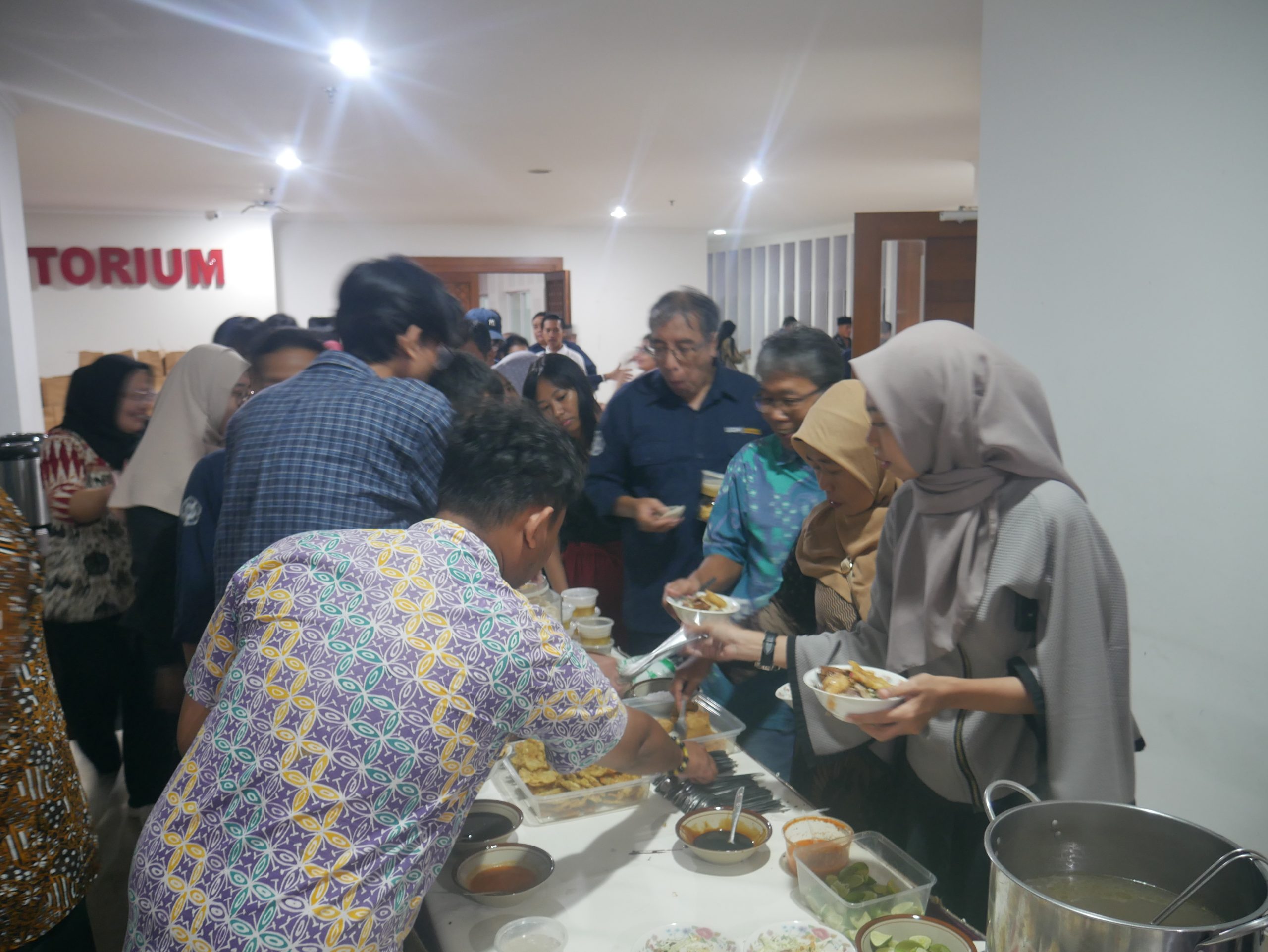On Monday, March 4, 2024, at 09.30 WITA, Dr. Arsanti Wulandari, S.S., M.Hum, a lecturer from the Javanese Language, Literature and Culture Study Program, became a speaker in a public lecture entitled ‘Philology in Javanese Manuscript Studies’. This activity was organized through the Zoom platform by the Old Javanese Literature Study Program, Faculty of Cultural Sciences, Udayana University (FIB UNUD).
In the public lecture, Dr. Arsanti Wulandari presented an introduction to philology, reviewed the concept of philology, the object of study, the tasks of philologists, and the final product produced. The presentation was equipped with examples of Javanese manuscripts and their identification, so that the audience could understand about philology more easily. The discussion session that followed provided space for participants to ask various questions, showing their high enthusiasm for the topics discussed.
This public lecture on philology was held in response to the diminishing interest of students in the field of philological studies. However, the government is currently seriously encouraging the excavation of knowledge and values contained in ancient manuscripts. Hopefully, through this kind of activity, interest and understanding of philology can grow again among students.
The importance of understanding and maintaining the sustainability of knowledge and cultural values contained in ancient manuscripts is the focus of this public lecture. By providing knowledge, enthusiasm, and establishing good cooperation, it is hoped that the knowledge and cultural values in ancient manuscripts can be preserved and can then be developed according to the needs of the times.

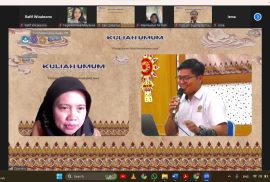
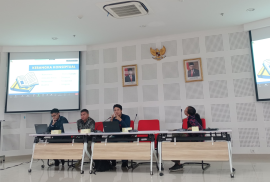
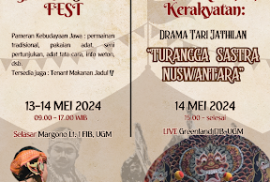

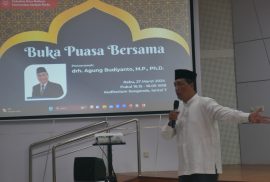
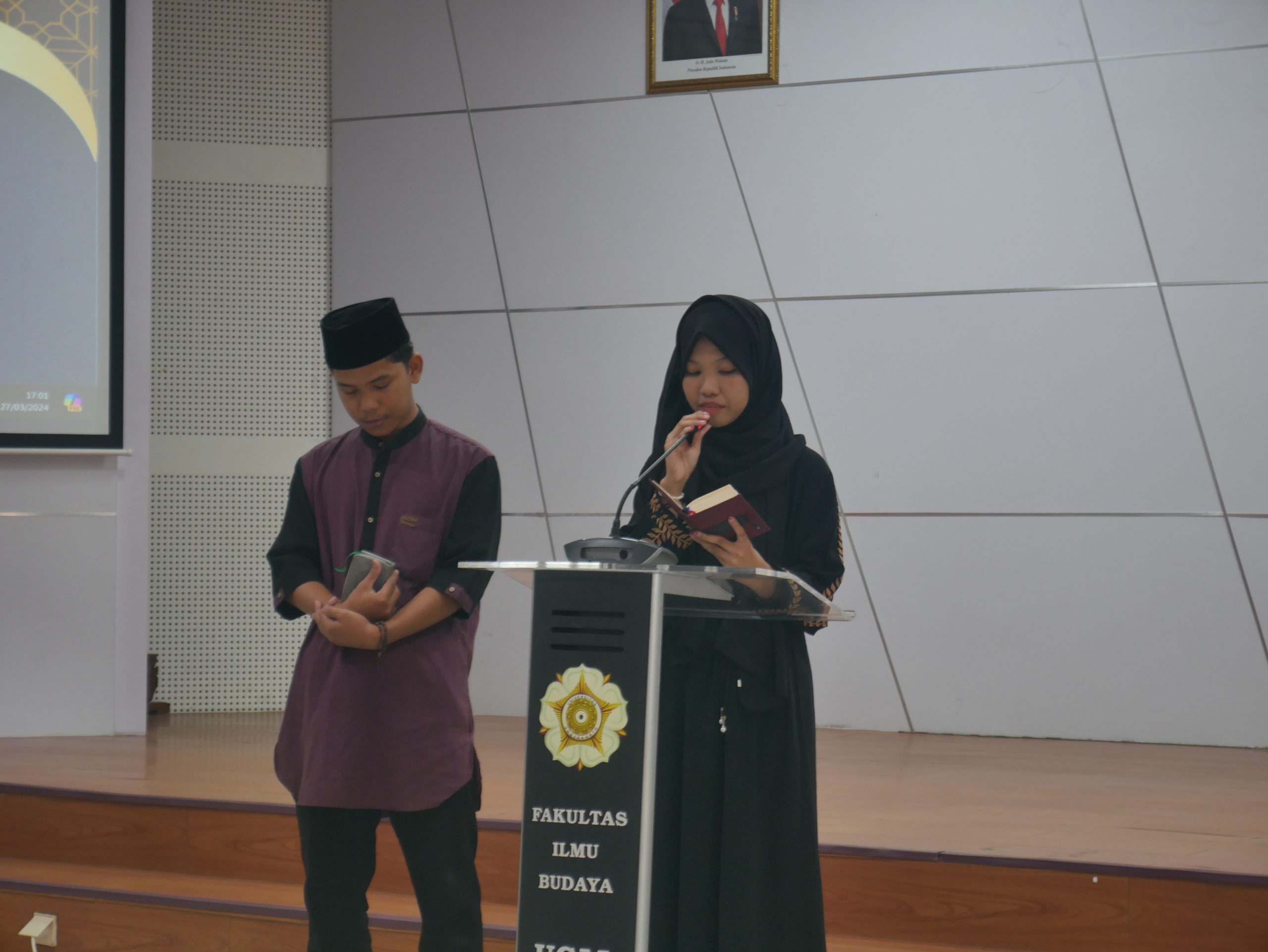 Iftar together this time began with a release session and giving mementos to the retired lecturers and teaching staff of FIB UGM for the period of 2023 to March 2024. The event then continued with a session of reading the holy verses of the Quran and
Iftar together this time began with a release session and giving mementos to the retired lecturers and teaching staff of FIB UGM for the period of 2023 to March 2024. The event then continued with a session of reading the holy verses of the Quran and 